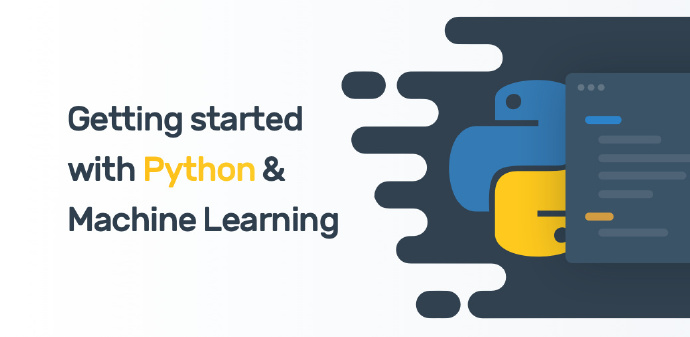Use Python to start machine learning
Currently popular in the world of machine learning. Men, women and children are learning machine learning models, classifiers, neural networks and Wu Ennda. You also want to be a part, but how do you get started?
In this article we will talk about the important features of Python and the reasons it applies to machine learning, introducing some important machine learning packages, and other places where you can get more detailed resources.
Why do machine learning in Python?
Python is well suited for machine learning. First, it is simple. If you are completely unfamiliar with Python but have some other programming experience (C or other programming languages), getting started is fast. Second, Python's community is strong. This makes Python documentation not only tractable but also easy to read. You can also find detailed answers to many questions on StackOverFlow (Learning Courses). And again, the by-product of a strong community is the vast library of useful libraries (native to Python and third-party software) that basically solve all your problems (including machine learning).
But I've heard Python is slow
Python is slow. It's not the fastest language to implement, and having so many useful abstractions comes at a price.
But this is a problem that can be solved: Libraries can outsource heavy computations to other more efficient (but harder) languages such as C and C ++. Such as NumPy this numerical computing library, is written in C, running fast. In practice, almost all libraries use NumPy to do the heavy lifting. If you see Numpy, you should think of it soon.
So you can make the program run faster with its low-level language to achieve the speed of operation compared. You do not need to worry about the speed of the program.
Worth knowing python library
Scikit-learn
Have you just started to learn the machine? If you need a library that covers all the features of feature engineering, model training and model testing, scikit-learn is your best bet! This great free software provides all the tools you need for machine learning and data mining. It is the current standard library for machine learning in Python. This library is recommended for use with any sophisticated machine learning algorithm.
This library supports both categorization and regression, implementing all of the classic algorithms (support vector machines, random forests, naive Bayes, etc.). The library design makes migrating algorithms so easy that experimenting with different algorithms is easy. These classic algorithms are highly usable and can be used in a large number of different situations.
But this is not the full functionality of Scikit-learn, it can also be used to do dimensionality reduction, clustering, whatever you can think of. Because it builds on Numpy and Scipy (all numerical calculations are done in C), it runs extremely fast.
NLTK
NLTK is not a machine learning library, but it is a library necessary for natural language processing (NLP). In addition to the features used for word processing, such as clustering, word segmentation, stemming, marking, parsing, etc., it also contains a large number of data sets and other lexical resources that can be used for model training.
